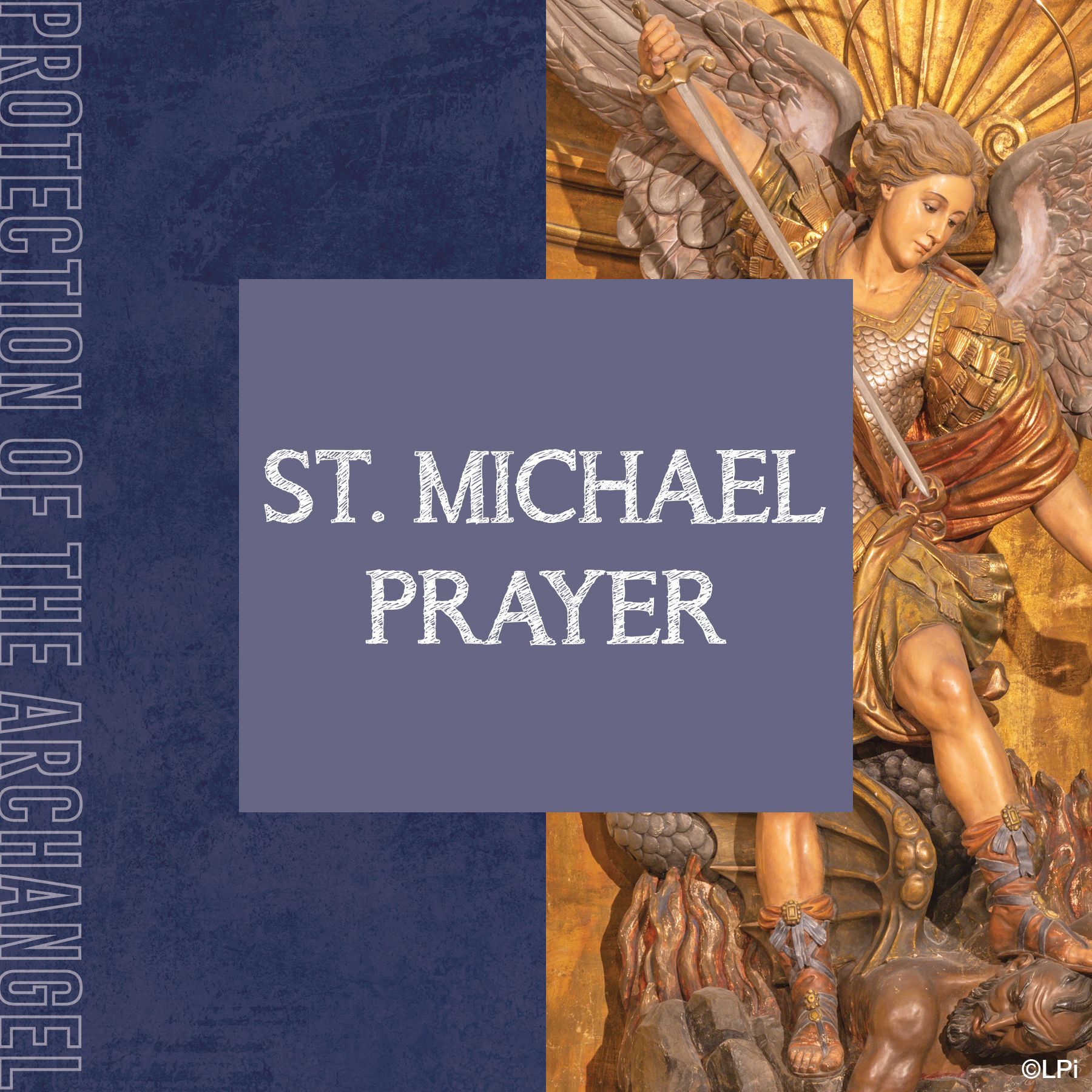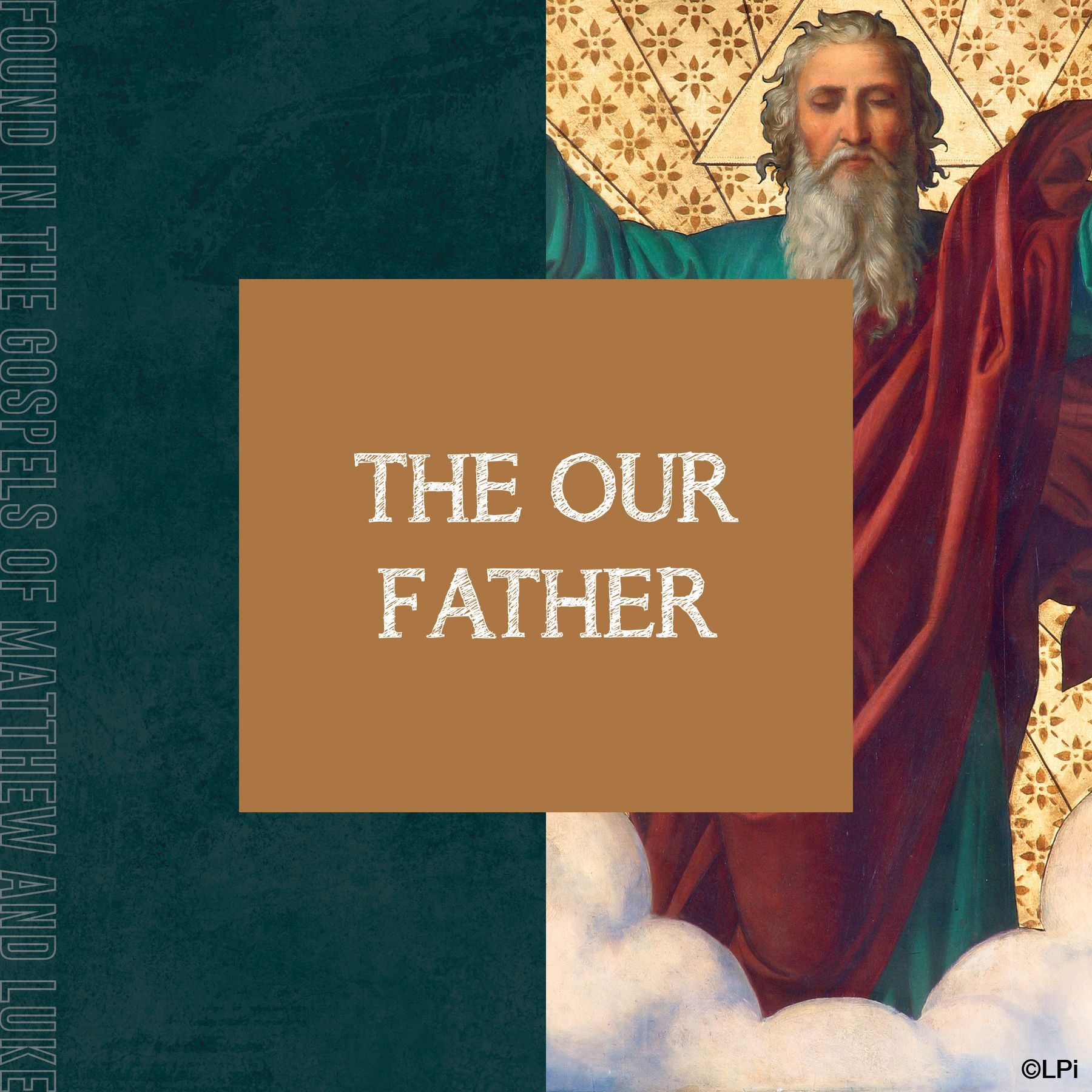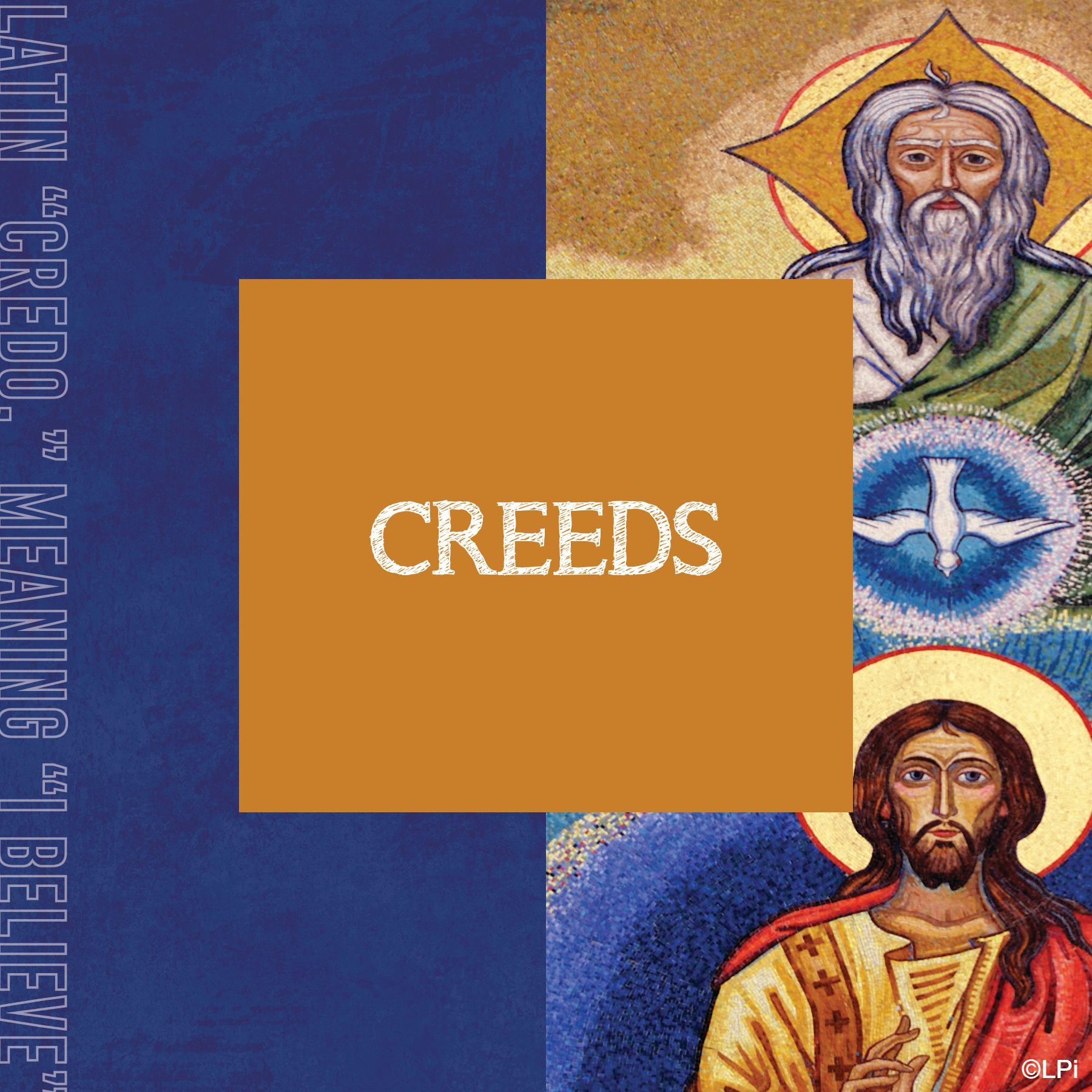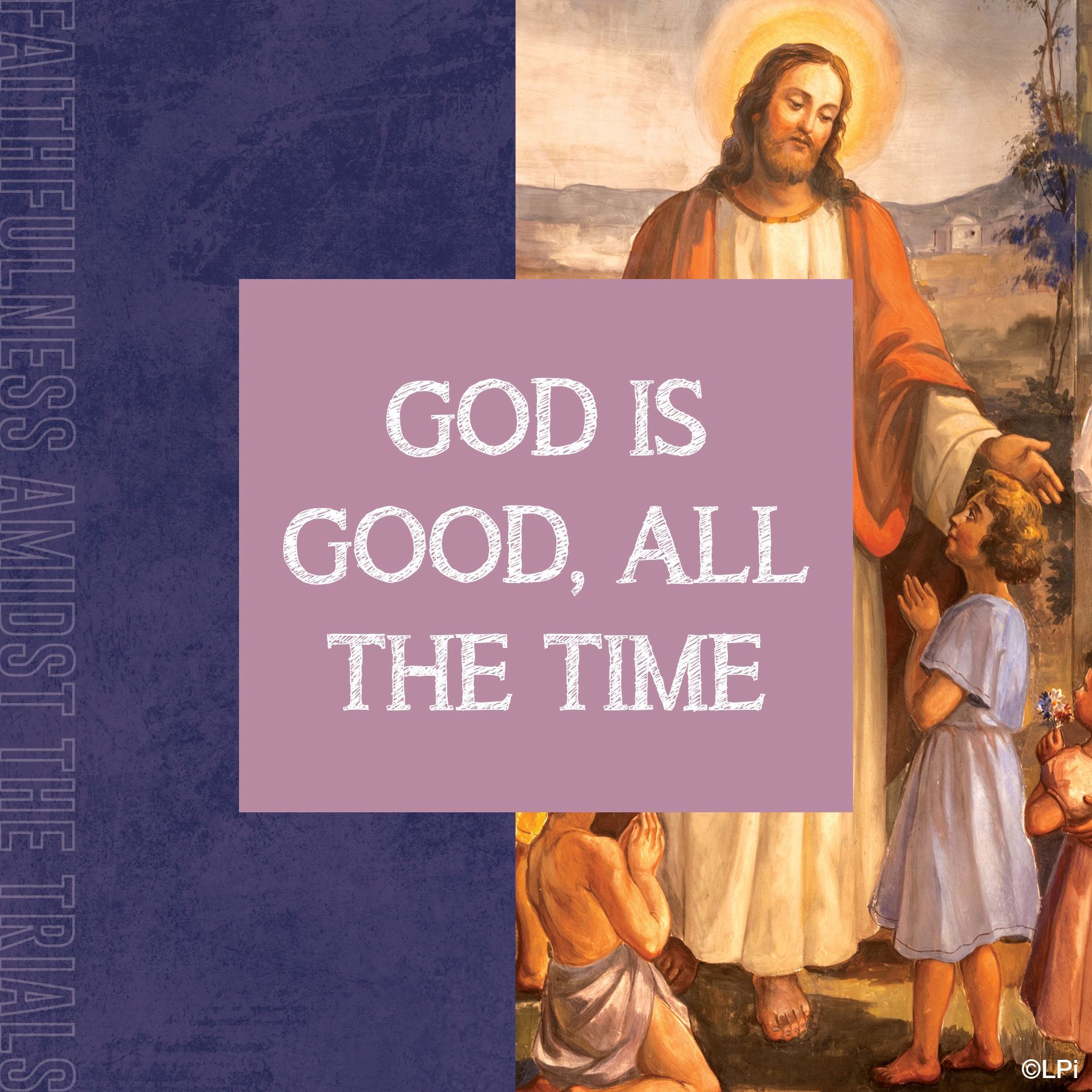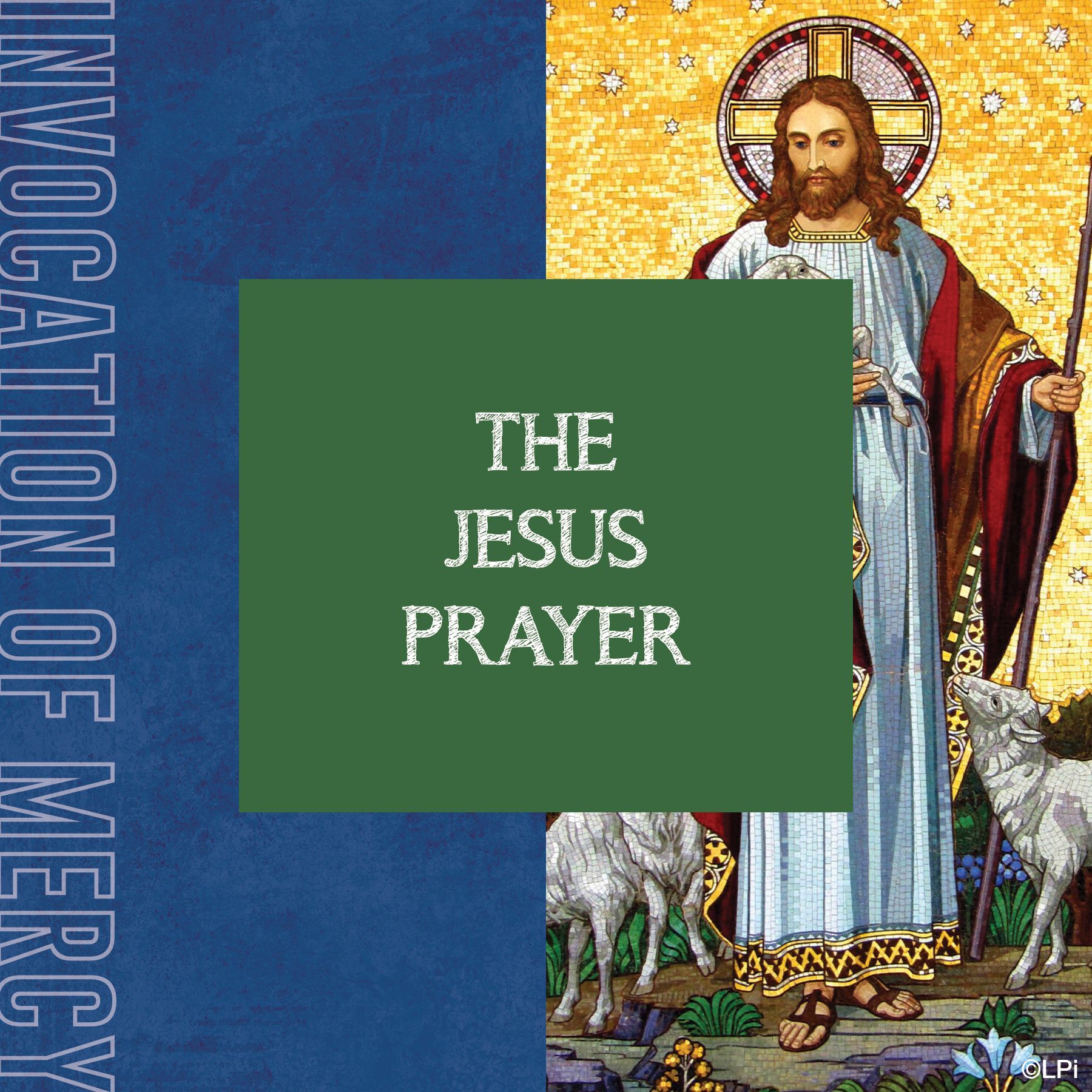Weekly Devotions
Devotions Explained
October 19, 2025
The Our Father
Mini Explanation
The Our Father, also known as The Lord’s Prayer, is found in the Gospels of Matthew and Luke. Universally beloved in most traditions of Christianity, its words are those of Jesus Christ himself as he answers his disciples’ queries on how best to pray.
The Our Father, Explained!
The Our Father, also known as The Lord’s Prayer, is found in the Gospels of Matthew and Luke. Universally beloved in most traditions of Christianity, its words are those of Jesus Christ himself as he answers his disciples’ queries on how best to pray.
The version presented in the Gospel of Matthew is longer and more detailed than that which is contained in the Gospel of Luke. Both versions instruct the faithful to address God as “Father,” to pray for the coming of His kingdom, to rely on His providence, and to embrace a spirit of forgiveness towards others, in the hope that we ourselves will be forgiven (Matthew 6:9-13, Luke 11:2-4). This last element, forgiveness, is also emphasized by Jesus in the Gospel of Mark (Mark 11:25) as an essential part of all prayer.
The Catechism quotes Tertullian when it calls the Our Father “the summary of the whole Gospel.
October 12, 2025
Creeds
Mini Explanation — Great for social media or in your bulletin
A creed (from the Latin “credo,” meaning “I believe) is a summary of the most important articles of faith agreed upon by a group of people who hold them as truth. Tradition has given us not just the Apostles’ and Nicene Creeds, but many more.
Creeds, Explained!
Most Catholics can recite at least portions of the Nicene and Apostles Creed by heart — but though these are perhaps the best-known two creeds of modern times, Church tradition has yielded many more.
A creed (from the Latin “credo,” meaning “I believe) is a summary of the most important articles of faith agreed upon by a group of people who hold them as truth. Tradition attributes authorship of the Apostles’ Creed to Christ’s 12 Apostles. The Nicene Creed originated at the first worldwide ecumenical council in Nicaea in 325 AD. The Athanasian Creed is another famous statement of belief approved by the Church, this one focusing particularly on the matter of the Holy Trinity.
All approved creeds fulfill Christ’s Great Commission to “make disciples of all nations” (Matthew 28:19) and the need for Christians to “always be prepared to make a defense to anyone who calls you to account for the hope that is in you” (1 Peter 3:15).
October 6, 2025
God is Good, All the Time
Mini Explanation
This popular phrase is an affirmation of God’s faithfulness amidst the trials of life, a theme that is presented again and again in Scripture: come what may, God will be with us.
Good is Good, All the Time: Explained!
Perhaps you have been a member of a congregation to whom the pastor says, expectantly, “God is good!” The congregation responds, faithfully, “All the time.” In turn, the speaker repeats: “All the time.” And the congregation affirms: “God is good!”
A collective affirmation of God’s faithfulness amidst the trials of life, this refrain communicates a theme presented again and again in Scripture: Come what may, God will be with us.
There is no official consensus on the origins of this saying, though it is often associated with African Christianity. Whatever this saying’s roots, its message is truth: “For the Lord is good; His mercy is everlasting; and His truth endures to all generations,” says Psalm 100:5. “Give thanks to the Lord, for He is good! For His mercy endures forever,” echoes 1 Chronicles 16:34. Jesus confirms this in Matthew 28:20: “I am with you always, even to the end of the age.”
September 28, 2025
Devotions, Explained!
The Morning Offering
Mini Explanation
There are many variations of the Morning Offering, but all share the same purpose: to begin each day by offering oneself to God, along with all the experiences, struggles and blessings that the day will bring.
Morning Offering, Explained!
There are many variations of the Morning Offering, but all share the same purpose: to begin each day by offering oneself to God, along with all the experiences, struggles and blessings that the day will bring.
The ancient Israelites practiced the bikkurim (“first fruits”) as described in Deuteronomy, chapter 26. This was a ritual by which the first fruits of the harvest were offered back to God in a sacrificial act of gratitude and obedience. The theology behind the Morning Offering is similar: giving to God the first moments of each day.
The most traditional form of the Morning Offering, attributed to Fr. François-Xavier Gautrelet, begins “O Jesus, through the Immaculate Heart of Mary, I offer you my prayers, works, joys, and sufferings of this day, for all the intentions of your Sacred Heart…” A full version of this text can be found at
usccb.org/prayers/morning-offering.
September 21, 2025
Devotions, Explained!
The Jesus Prayer
Mini Explanation
The Jesus Prayer is a short invocation of mercy in the name of Jesus: “Lord Jesus Christ, Son of God, have mercy on me, a sinner.” Often attributed to the tradition of Eastern Christianity, its short form makes it ideal for meditative prayer.
The Jesus Prayer, Explained!
The Jesus Prayer is a short invocation of mercy in the name of Jesus: “Lord Jesus Christ, Son of God, have mercy on me, a sinner.”
The exact origins of the prayer are unclear, though it is often attributed to the tradition of Eastern Christianity, possibly via the Desert Fathers (early Christian ascetics who dwelled in Egypt). The prayer has been important to the traditions of both the Eastern Orthodox and the Eastern Catholic faithful. The text echoes the words of the publican in the parable from Luke 18:9-14, whose humble manner of prayer was praised by Jesus. Its short form and simple wording make it ideal for meditative prayer.
The Catechism of the Catholic Church, in paragraph 2667, highlights the Jesus Prayer, saying that “by it the heart is opened to human wretchedness and the Savior's mercy.”
St. Michael Prayer
Mini Explanation —
The prayer to St. Michael, composed by Pope Leo XIII, invokes the protection of the archangel Michael in the ongoing spiritual battle for the souls of all mankind. It is commonly said at the end of the rosary and by some parishes after the conclusion of Mass.
St. Michael Prayer, Explained!
The prayer to St. Michael invokes the protection of the archangel Michael in the ongoing spiritual battle for the souls of all mankind. This prayer was composed by Pope Leo XIII and its use was instituted in 1886 at the end of Low Mass, a tradition which continued until the liturgical reforms of the Second Vatican Council. A popular story regarding its origin claims that the Pope wrote this prayer after having a vision of demonic spirits descending on Rome.
Michael is mentioned as one of God’s seven archangels in the Book of Enoch and is presented by Revelations 12:7-12 as the warrior angel who cast Satan from heaven. He is therefore traditionally venerated as a protector against the forces of evil and a guardian of the Church.
The Prayer to St. Michael is still commonly said at the end of the rosary and by some parishes after the conclusion of Mass.
